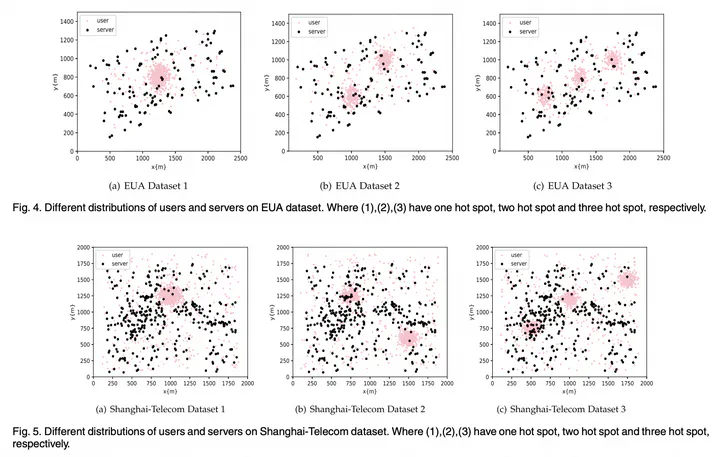ST-EUA: Spatio-Temporal Edge User Allocation With Task Decomposition
Jan 1, 2023·
,
 ,
,
,
,
·
0 min read
,
,
,
,
·
0 min read
Guobing Zou
Ya Liu
Zhen Qin
Jin Chen
Yanglan Gan
Bofeng Chang
Qiang He

Abstract
Recently, edge user allocation (EUA) problem has received much attentions. It aims to appropriately allocate edge users to their nearby edge servers. Existing EUA approaches suffer from a series of limitations. First, considering users’ service requests only as a whole, they neglect the fact that in many cases a service request may be partitioned into multiple tasks to be performed by different edge servers. Second, the impact of the spatial distance between edge users and servers on users’ quality of experience is not properly considered. Third, the temporal dynamics of users’ service requests has not been fully considered. To overcome these limitations systematically, this article focuses on the problem of spatio-temporal edge user allocation with task decomposition (ST-EUA). We first formulate the ST-EUA problem. Then, we transform ST-EUA problem as an optimization problem with multiple objectives and global constraints and prove its NP-hardness. To tackle the ST-EUA problem effectively and efficiently, we propose a novel genetic algorithm-based heuristic approach called GA-ST, aiming to maximize users’ overall QoE while minimizing the cost of task migration in different time slots. Extensive experiments are conducted on two widely-used real-world datasets to evaluate the performance of our approach. The results demonstrate that GA-ST significantly outperforms state-of-the-art approaches in finding approximate solutions in terms of the trade-off among multiple metrics.
Type
Publication
IEEE Transactions on Services Computing